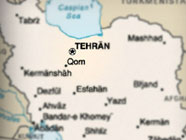The AIPAC-backed sign-on letters regarding US-Israel relations and the peace process, as well as sign-on letters regarding Iran sanctions, are circulating in both the House and Senate and posted on AIPAC's website. As expected, these are the two main "asks" that AIPAC will be bringing to Congress during its lobby day tomorrow.
US-Israel relations and the peace process: APN's analysis/comments regarding the http://www.aipac.org/Publications/SourceMaterialsCongressionalAction/Boxer-Isakson_Letter_with_Dear_Colleague.pdf (link has expired) Senate letter, being circulated
by Senators Boxer (D-CA) and Isakson (R-GA) are available
here.
The http://www.aipac.org/Publications/SourceMaterialsCongressionalAction/HoyerCantorLetterDC.pdf (link has expired) House letter, being circulated by Hoyer (D-MD), Cantor (R-VA),
Berman (D-CA), Ros-Lehtinen (R-FL), Ackerman (D-NY), and Burton (R-IN)
is similar to the Senate version, but different in two key ways.
First, it omits the paragraph blaming the Palestinians for the failure to
re-start peace talks (the Senate version asserts that it is
Palestinian intransigence and preconditions, not Israeli actions, that
are to blame). Second, the House letter makes explicit the call for
US-Israel disagreements to be handled "quietly" (something that is
implied, but not explicitly stated, in the Senate version).
Iran sanctions: Also circulating (and available on AIPAC's website) are
AIPAC-backed House and Senate letters urging the President to impose
"crippling" sanctions on Iran -- a somewhat odd ask, since the legislation that
AIPAC is lobbying for would actually force the president to impose such sanctions, meaning "urging" unnecessary. The letters also urge him to implement his "existing authority" on Iran - an implied criticism that he is not fully implementing the sanctions already imposed under US law. The House version of the
letter, being circulated by Reps. Jackson Jr. (D-IL) and Pence (R-IN) is
available http://www.aipac.org/Publications/SourceMaterialsCongressionalAction/Jackson-Pence_Letter_with_Dear_Colleague.pdf (link has expired) here.
The Senate version, being circulated by Sens. Schumer (D-NY) and Graham
(R-SC), is available http://www.aipac.org/Publications/SourceMaterialsCongressionalAction/031910_DC_Iran_Sanctions_Letter.pdf (link has expired) here.
